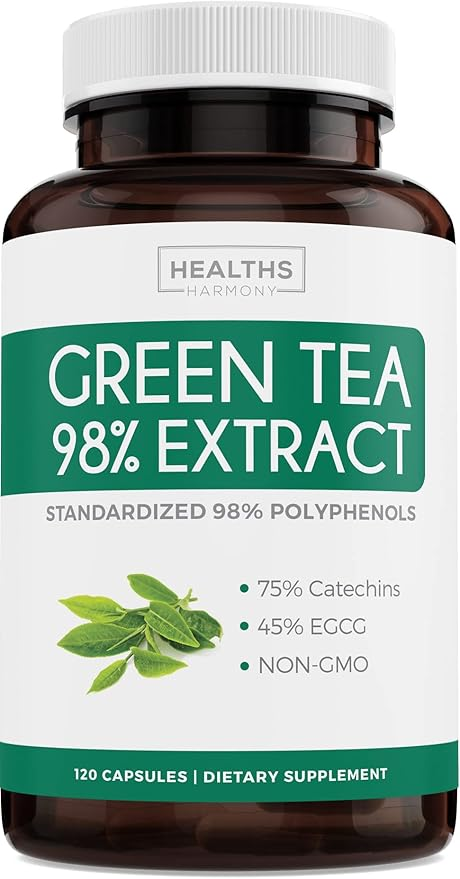Content Menu
● Introduction
● Understanding Green Tea Extract Composition
● Recommended Daily Dosage
● Health Benefits and Therapeutic Applications
>> Metabolic Health and Weight Management
>> Cardiovascular Health
>> Antioxidant Protection
● Safety Considerations and Potential Side Effects
>> Optimal Timing and Administration
>> Potential Interactions
● Scientific Evidence and Clinical Studies
>> Weight Management Studies
>> Cardiovascular Research
● Conclusion
● Frequently Asked Questions
Introduction
Green tea extract has emerged as one of the most studied natural compounds in modern nutritional science, garnering significant attention for its potential health benefits and therapeutic applications. This comprehensive analysis explores the optimal daily dosage of green tea extract, its mechanisms of action, health benefits, and safety considerations. The primary active compound in green tea extract, epigallocatechin gallate (EGCG), has been the subject of numerous clinical studies and scientific investigations, making it essential to understand the appropriate daily intake for maximum benefits while maintaining safety.
Understanding Green Tea Extract Composition
Green tea extract is a concentrated form of the compounds found in green tea leaves, with EGCG being the most abundant and biologically active catechin. The extract also contains other beneficial compounds, including other catechins, flavonoids, and polyphenols. These components work synergistically to provide various health benefits, from antioxidant protection to metabolic enhancement.

Recommended Daily Dosage
Research indicates that the optimal daily dosage of green tea extract varies depending on the intended health benefits and individual factors. According to clinical studies, the following guidelines have been established:
1. Standard Daily Dose: 240-320 mg of polyphenols per day
2. Maximum Safe Intake: Up to 338 mg of EGCG per day for adults
3. Therapeutic Dose: 800 mg of EGCG daily for specific health conditions
4. Traditional Consumption: 3-5 cups of green tea (equivalent to 250-400 mg of catechins)
Health Benefits and Therapeutic Applications
The extensive research on green tea extract has revealed numerous health benefits when consumed at appropriate doses:
Metabolic Health and Weight Management
Clinical studies have demonstrated that green tea extract can significantly impact metabolic health and weight management. Regular consumption has been associated with:
◆ Enhanced fat oxidation
◆ Improved insulin sensitivity
◆ Reduced body fat percentage
◆ Lower waist circumference
Cardiovascular Health
Green tea extract has shown promising effects on cardiovascular health markers:
◆ Reduction in blood pressure
◆ Improved lipid profiles
◆ Enhanced endothelial function
◆ Decreased inflammation markers

Antioxidant Protection
The potent antioxidant properties of green tea extract contribute to:
◆ Cellular protection against oxidative stress
◆ Reduced DNA damage
◆ Enhanced immune system function
◆ Improved tissue repair and regeneration
Safety Considerations and Potential Side Effects
While green tea extract is generally considered safe, certain precautions should be observed:
Optimal Timing and Administration
◆ Take with meals to minimize gastrointestinal effects
◆ Avoid consumption on an empty stomach
◆ Space doses throughout the day
◆ Consider cycling supplementation
Potential Interactions
◆ Caffeine sensitivity
◆ Iron absorption
◆ Medication interactions
◆ Liver function considerations
Scientific Evidence and Clinical Studies
Recent clinical trials have provided strong evidence for the efficacy of green tea extract:
Weight Management Studies
A randomized, double-blind trial demonstrated significant weight reduction with 856.8 mg daily EGCG intake.
Cardiovascular Research
Meta-analyses have shown consistent improvements in cardiovascular markers with regular green tea extract supplementation.

Conclusion
The optimal daily intake of green tea extract depends on individual health goals, tolerance, and existing medical conditions. Based on current research, a daily dose of 240-338 mg EGCG appears to be both safe and effective for most adults. However, higher doses may be appropriate under medical supervision for specific therapeutic purposes.
Frequently Asked Questions
Q: Can I take green tea extract on an empty stomach?
A: It's recommended to take green tea extract with meals to minimize potential gastrointestinal discomfort and optimize absorption.
Q: How long does it take to see benefits from green tea extract supplementation?
A: Most studies show measurable benefits within 8-12 weeks of consistent supplementation at recommended doses.
Q: Are there any groups who should avoid green tea extract?
A: Pregnant women, those with liver conditions, and individuals sensitive to caffeine should consult healthcare providers before using green tea extract.
Q: What's the best time of day to take green tea extract?
A: Morning or early afternoon consumption is optimal to avoid potential sleep disruption from caffeine content.
Q: Can green tea extract interact with medications?
A: Yes, green tea extract can interact with various medications, including blood thinners and certain antidepressants. Consult a healthcare provider if you're taking any medications.






























